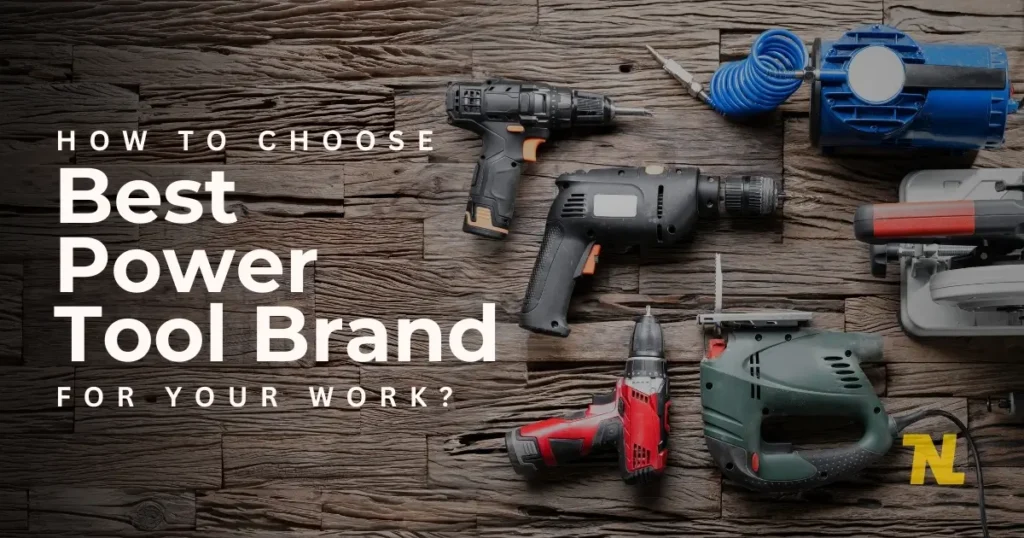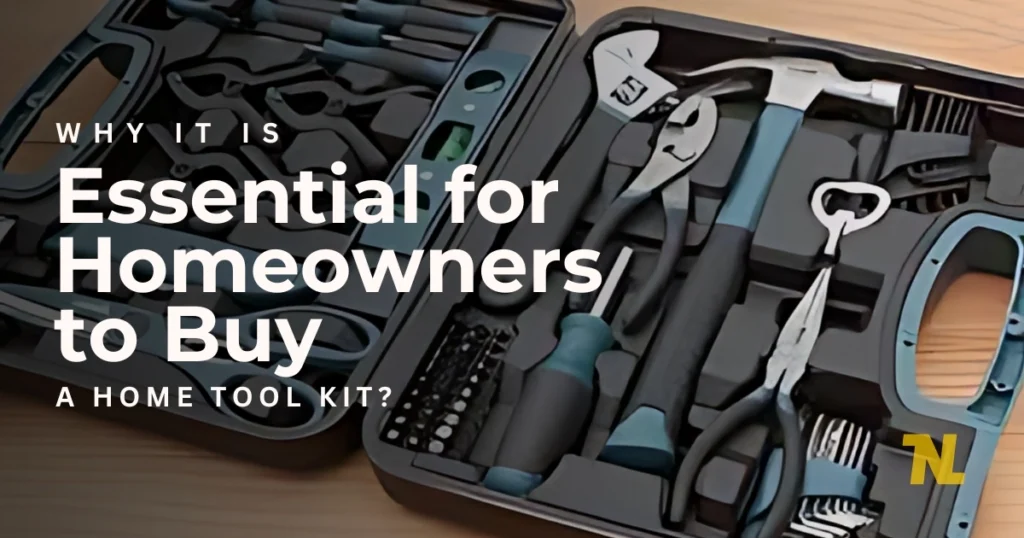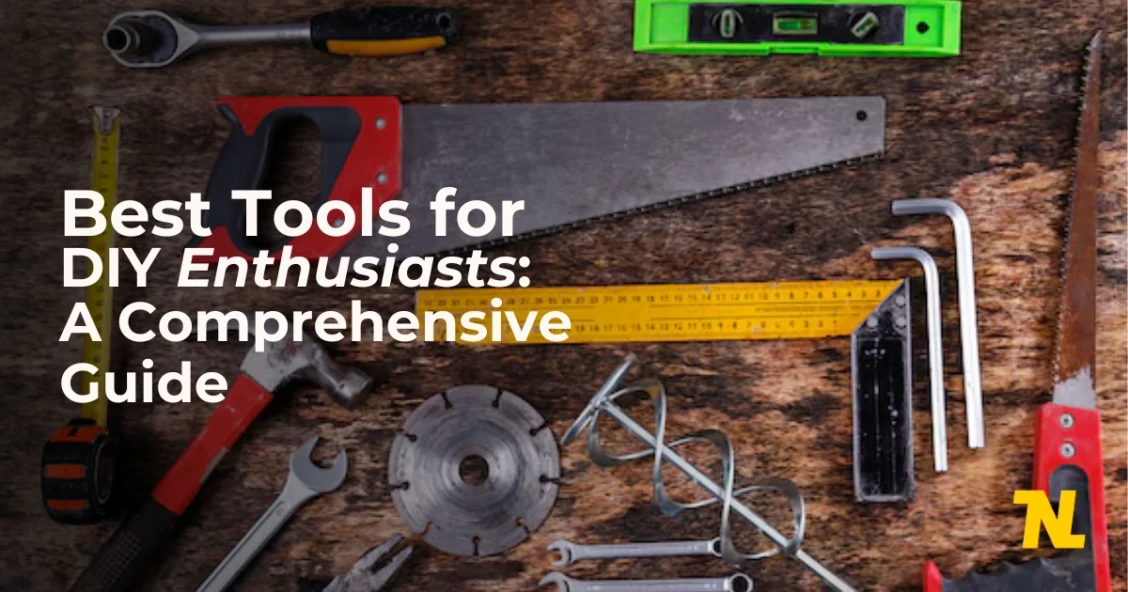
DIY projects allow you to create, repair and customise things around your house and can be rewarding and exciting. Whether you are a beginner or a seasoned DIY enthusiast, you must have the right tools to make your project successful. The right tools make all the difference between accomplishment and frustration, whether it’s a simple or complex task.
Best Tools Every DIY Enthusiasts Must Have
In this article, we will discuss the best tools that every DIY enthusiast must have in their toolkit. The tools are divided into three sections: hand, power and speciality tools, which help you complete most of your home improvement tasks. We discuss different tools and their benefits in DIY projects.
Handy/Hand Tools
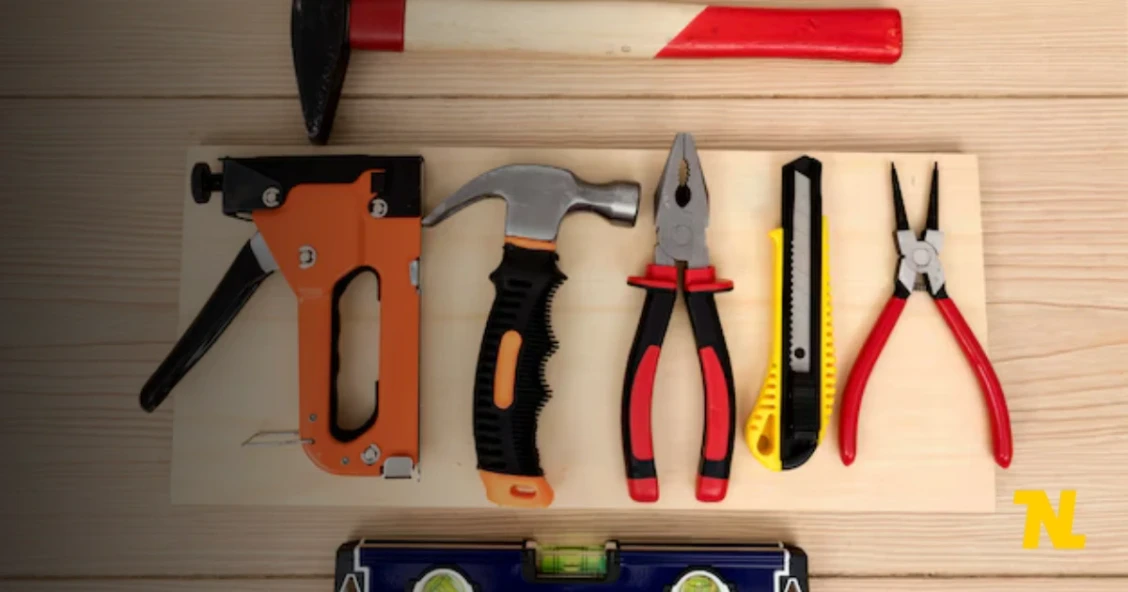
The hand tools are the starting point of the toolkit of every DIYer. These tools are essential for detailed and precise work. They require less maintenance and are portable, making them best for outdoor and remote use.
Hammer
Hammer is an essential tool in every DIY project. Without this tool no toolbox is complete. A claw hammer is the best option for general DIY projects as it allows you to drive the nails and remove them. You also invest in the speciality hammers according to your projects. For metalworking, you can buy a ball-peen hammer; for demolition tasks, you can buy a sledgehammer.
Screwdrivers
A set of screwdrivers, including both Phillips and flathead required for most of the DIY projects. This tool is a must-have for certain tasks such as tightening loose screws, installing fixtures and assembling furniture. For smaller tasks like electronics repairs, you should consider precision screwdrivers; for uncommon screwdrivers, speciality Screwdrivers are best.
Measuring Tape
A good measuring tape is one of the most important tools in your toolkit because every project is complete with accurate measurements. For larger spaces, a laser measure provides you with more accuracy and retractable measuring tape provides you convenience. You can choose the one according to your preference.
Pliers and Wrenches
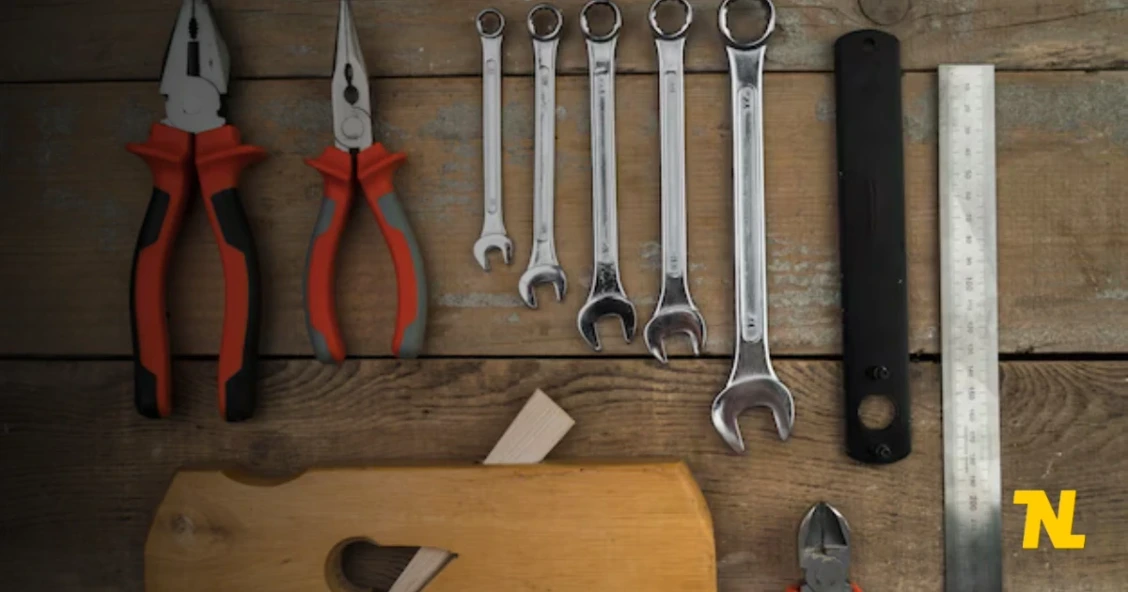
The cutting, gripping and tightening make pliers and wrenches essential tools. The channel-lock pliers are best for plumbing tasks and needle-nose pliers are great for detailed work. The adjustable wrenches are a great addition to your toolkit as they can be used for a wide range of bolts and nuts.
Power Tools
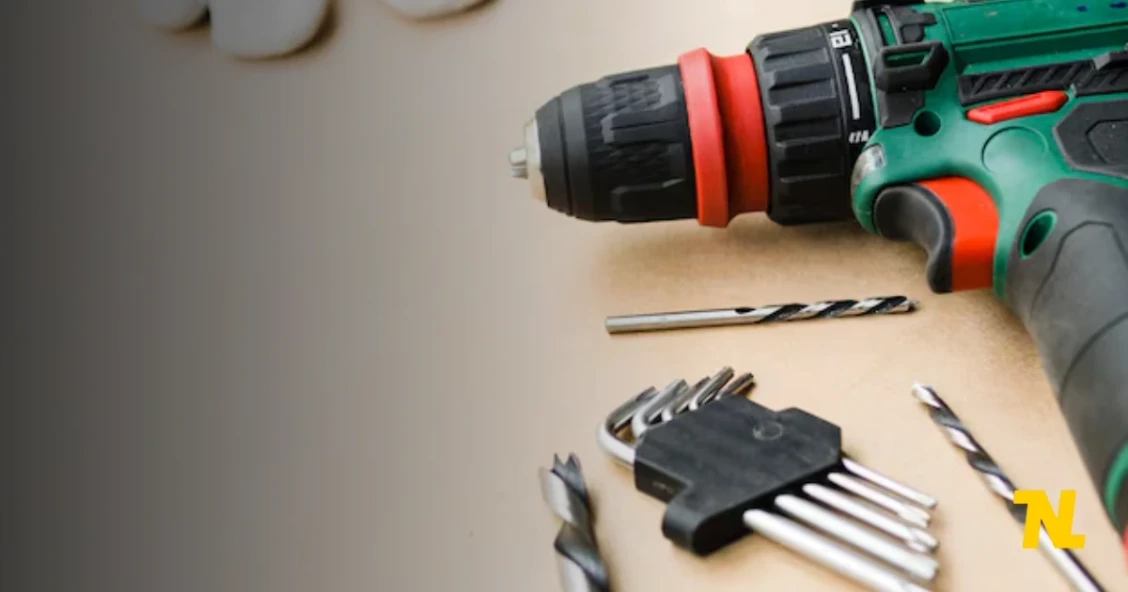
Cordless Drill
It is one of the most functional tools you can have in your toolkit. This tool can be used for driving screws, drilling holes and mixing paint. If you are working in an area where easy access to a power outlet is not available this tool is best. Because of its cordless feature, it is best for both outdoor and indoor projects. They are adjustable to a wide range of tasks because modern cordless drills have the settings of changeable speeds and torque.
Circular Saw
A circular saw is necessary when it comes to woodworking. This tool is efficient and powerful and helps you in various cutting jobs such as farming a house, building furniture or just cutting boards for your weekend project. It is essential for every DIY woodworker because of its ability to make both straight and slope cuts.
Orbital Sander
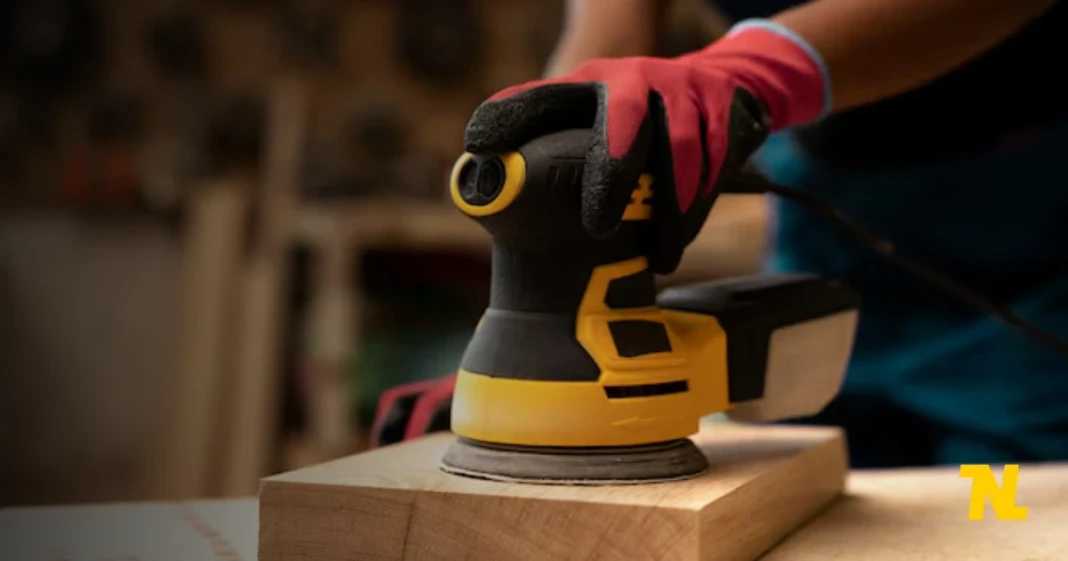
This tool is your best friend if you want professional-looking and smooth finishes on your woodworking projects. This tool minimizes the risk of uneven surfaces and scratches and helps you sand large areas quickly. When you have to paint or stain this tool helps you in prepping surfaces.
Angle Grinder
This tool can be used for a wide range of tasks like cutting, polishing and grinding. It doesn’t matter which tool you are working with, whether it is stone, tile or metal this tool provides you with smooth finishes and clean cuts. You can also use it for sharpening blades, polishing surfaces or removing rust with the right attachments.
Advanced DIYers Speciality Tools
You might want to do complex tasks once you mastered the basic projects. If you want to do this then you will need some advanced DIYers speciality tools. These tools are for those who want to tackle some big DIY projects.
Pipe Wrenches and Plumber’s Tape
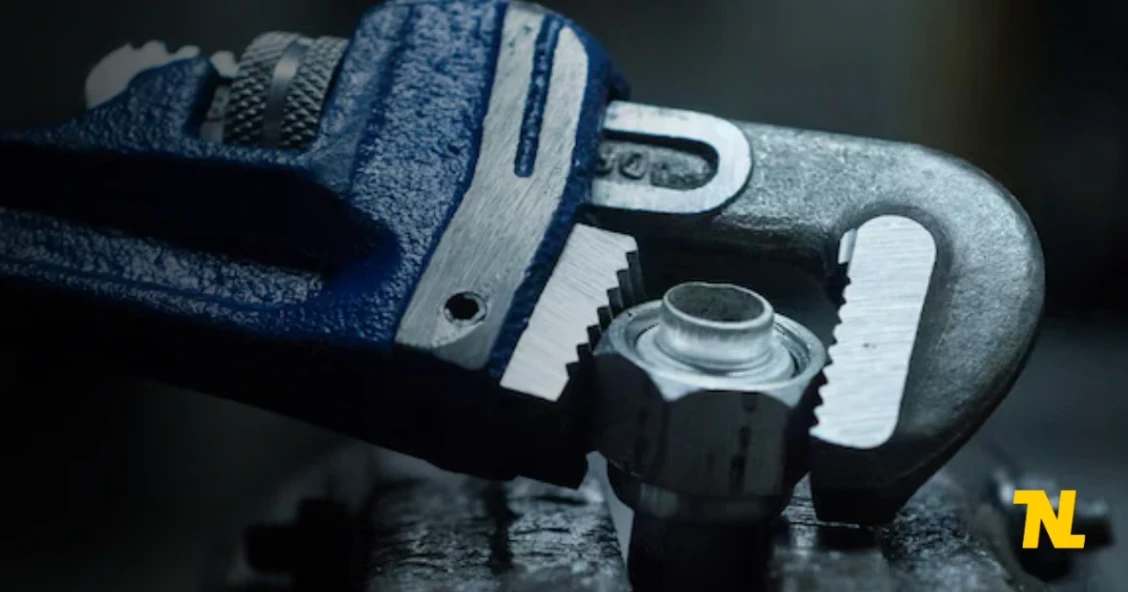
A pipe wrench and a plumber’s tape are must-haves for plumbing repairs like installing new fixtures or fixing leaks. The plumber’s tape provides you with a watertight seal by making deeper threaded connections. You can also use a plumber when you are removing faucets and showerheads. On the other hand, pipe wrenches help you in tightening or loosening of pipes. You can use this to replace the section of the damaged pipe or to fix the large bolts or nuts.
Wire Stripper and Voltage Tester
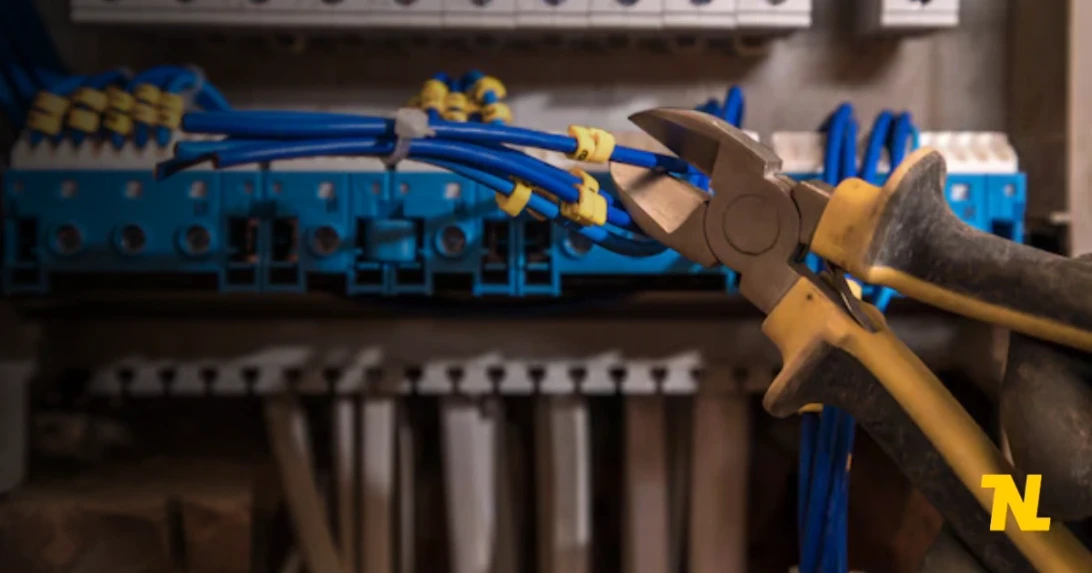
Safety should be always your priority when you work with electrical systems. A wire stripper allows you to make safe connections by making sure of clean and precise cuts, while a voltage tester helps you to check if the wires are live or not. These tools are essential in situations when you are tackling basic electrical repair or doing some new installation, like replacing the light fixture or outlets.
Socket Set and Car Jack
A car jack and a socket set are essential if you are into DIY automotive. The socket set helps you work on multiple types of nuts and bolts while car ack allows you to lift your vehicles safely. With the help of these tools, use can easily perform your routine car maintenance tasks like rotating tyres or changing oil.
Safety Gear for Protection During DIY Projects
When you tackle any DIY project safety should be your priority. Always wear safety gear so that you can avoid injuries and work confidently. If you don’t have safety wear then it’s your time to invest in quality protective gear right now. These are some protective gear that are worth buying for every DIY project.
Safety Glasses and Gloves
The safety glasses protect your eyes from dust, debris and harmful materials, while the protective gloves provide safety from burns, cuts and chemical exposure. These are very helpful when working with hazardous materials or using power tools. Always wear these when you are doing these types of tasks.
Ear Protection and Respirators
Some other tasks require different protective gear, like those that generate fumes, dust or loud noise. The ear protection provides you with protection for your hearing especially when you are the tools that make a loud noise such as saws or grinders.
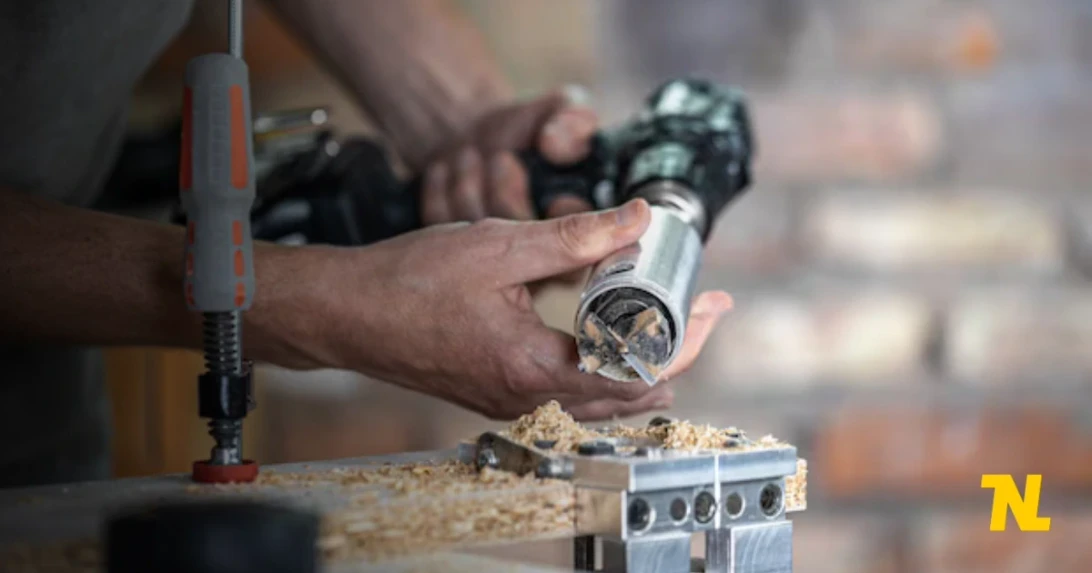
Organisation and Storage for Your Best Tools
If you want to keep your tools in good condition and make your DIY projects easier then you need a well-organized workspace because a clear space leads to a clear mind. When your mind is clear then your productivity increases. Here are some tips that help you store and organize your tools efficiently.
Tool Chests and Toolboxes
If you to make your most-used tools portable and easy to access then a toolbox is perfect. A rolling tool chest provides you with more space and organization options for a large collection of tools. There’s a lockable drawer in most of the tool chests to keep your tools safe and secure.
Shelving and Pegboards
The pegboards are an excellent option for those who prefer wall-mounted storage. They make your tools easy to reach and allow you to hang them where they are visible. Shelving can provide additional storage space for bulkier items like Power Tools and accessories.
Conclusion
Investing in quality tools is a key is a key to long-term DIY project success. It does not if you are just starting or expanding your toolkit. You can complete your projects faster, more safely and with better results if you have the right tools. `You will be ready to tackle any DIY project that comes your way by choosing your tools wisely and maintaining them regular maintenance.
